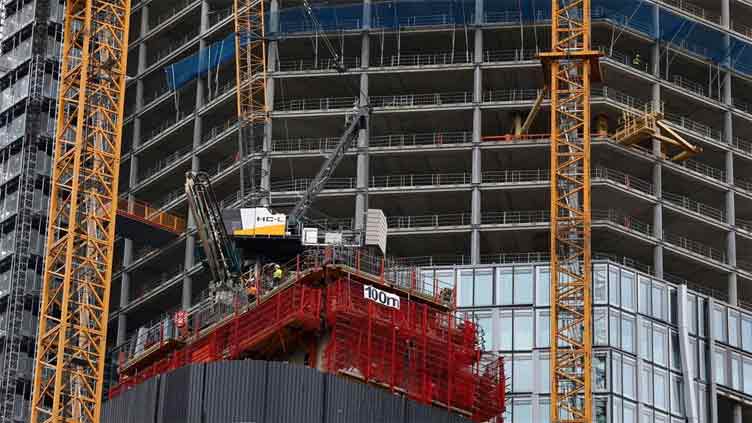China is considering a plan for local governments nationwide to buy millions of unsold homes, Bloomberg News said on Wednesday, after a meeting of leaders of the ruling Communist Party called for efforts to clear mounting housing inventory.
The State Council is gathering feedback on the preliminary plan from various provinces and government bodies, the report added, citing people familiar with the matter.
China’s blue-chip CSI 300 real estate index climbed as much as 6 per cent at one point following the report, before paring gains, while the yuan firmed.
China’s property sector has been in a deep slump for years, hit by a debt crisis among developers. Since 2022, waves of policy measures have failed to turn around the sector that represents around a fifth of the economy and remains a major drag on Chinese consumer spending and confidence.
Banks have been reluctant to heed Beijing’s repeated nudges to bolster credit to the embattled sector given the risks of more bad loans and continued weak sales. Home sales value of top 100 developers in April slid 45pc from a year earlier, according to recent surveys published by CRIC, a major real estate information provider.
The Politburo of the Communist Party held a meeting on April 30, saying it would improve policies to clear mounting housing inventories.
Dozens of cities have offered subsidies to encourage residents to replace their old apartments with new ones, in order to sell their growing stock of new apartments and provide crucial cash-flow to ailing developers.
Local state-owned enterprises would be asked to help purchase unsold homes from distressed developers at steep discounts using loans provided by state banks, according to the report, adding that many of these homes would then be converted into affordable housing.
Officials in China are debating the plan’s details and feasibility, and it could take months for it to be finalised, if the country’s leaders decide to go ahead, the report said.
Linan district in the eastern city of Hangzhou issued a notice on Tuesday that the local government will purchase new apartments from private developers for public rental housing.
The district, which has 650,000 residents, said the total area of the flats purchased does not exceed 10,000 square metres. The homes will be existing houses or pre-sold homes available for delivery within one year.
China’s housing ministry did not respond to Reuters request for comment.
One of the biggest drags on property demand is that cash-strapped private developers have halted construction on a large number of new homes that were pre-sold but now cannot be delivered on time. The buyers of these homes, meanwhile, are continuing to pay off their mortgages.
Estimates vary widely, but analysts agree there are tens of millions of uncompleted apartments across China after a building boom turned to bust.
“It’s been our view that Beijing will eventually have to address concerns about homes being delivered,” economists from Nomura said in a recent research note.
“Beijing should reach into its own pockets, even with printed money from the People’s Bank of China, to support the completion of new homes that were pre-sold by developers,” noting such a move made more sense than building public housing from scratch.
Nomura expects that eventually Beijing will set up a special agency and set aside a special fund for such a rescue.
Post Views: 10


 Sports3 months ago
Sports3 months ago
 Sports3 months ago
Sports3 months ago
 Fashion3 months ago
Fashion3 months ago
 World3 months ago
World3 months ago
 pakistan3 months ago
pakistan3 months ago
 pakistan3 months ago
pakistan3 months ago
 World3 months ago
World3 months ago
 Sports2 months ago
Sports2 months ago



















